Events
| Name | organizer | Where |
|---|---|---|
| MBCC “Doing Business with Mongolia seminar and Christmas Receptiom” Dec 10. 2025 London UK | MBCCI | London UK Goodman LLC |
NEWS

Mongolia records growth in drug-linked crimes www.menafn.com
The country's National Police Agency (NPA) declared that the Mongolian police have detained 88 people connected to 29 drug-linked crimes in the first two months of this year.
Munkhtur Munkhshur, spokesperson of the NPA confirmed: "Since 2015, Mongolia has become one of the user countries of drugs. The number of drug-related crimes has continued to increase."
Munkhshur added: "A total of 29 drug-related crimes have been registered in Mongolia in the first two months of 2019," as the data is similar to the score of this kind of offences recorded in the first half of 2018.
The key motives behind the raising cases of drug-linked were the ignorance regarding drug dealing, curiosity, trying to earn easy money and loose laws.
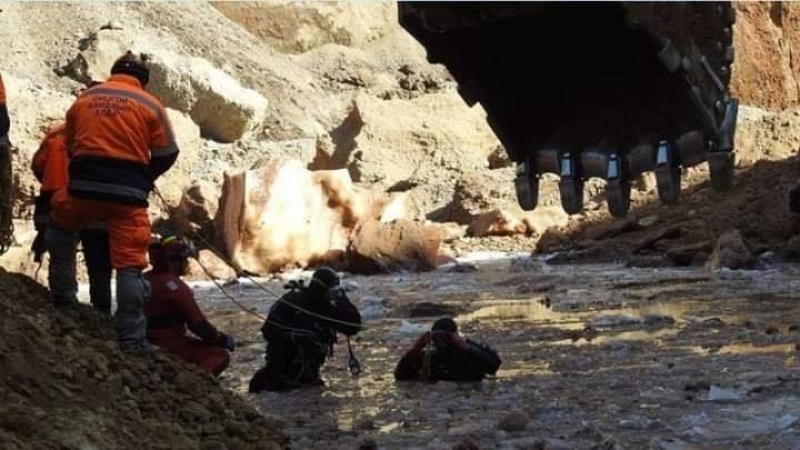
D.Sumiyabazar: licenses of Eco Altan Zaamar will be cancelled www.montsame.mn
Ulaanbaatar/MONTSAME/ In connection with the accident happened in late February at the open-pit gold mine of Eco Altan Zaamar Company in Tuv aimag which took lives of four miners, Mining and Heavy Industry Minister D.Sumiyabazar expressed his deep condolences during a monthly conference ‘Transparent and accountable mining’ held on 15 March.
“This is a consequence of unaccountable mining activity being done by unprofessionals and those who do not follow instructions of professionals and engineers, but seek profits only.”
He informed the ministry’s decision to cancel all of four mining licenses of Eco Altan Zaamar Company, adding that the Ministry is waiting for a conclusion to be issued by the State Professional Inspection Agency.
“The incident is an example of dispersed responsibilities and duties of the mining-related higher and lower level government organizations and local organizations. It needs a legal change. For instance, the Ministry is authorized to issue a license, but does not have the right to cancel it. Instead, the State Professional Inspection Agency is authorized to cancel licenses,” stressed the Minister.
So far, there are 3022 licenses: 1342 exploration and 1680 mining licenses, registered at the Cadastre Registration System. The total licensed area makes up 5.4 percent of the country’s territory.
M.Unurzul
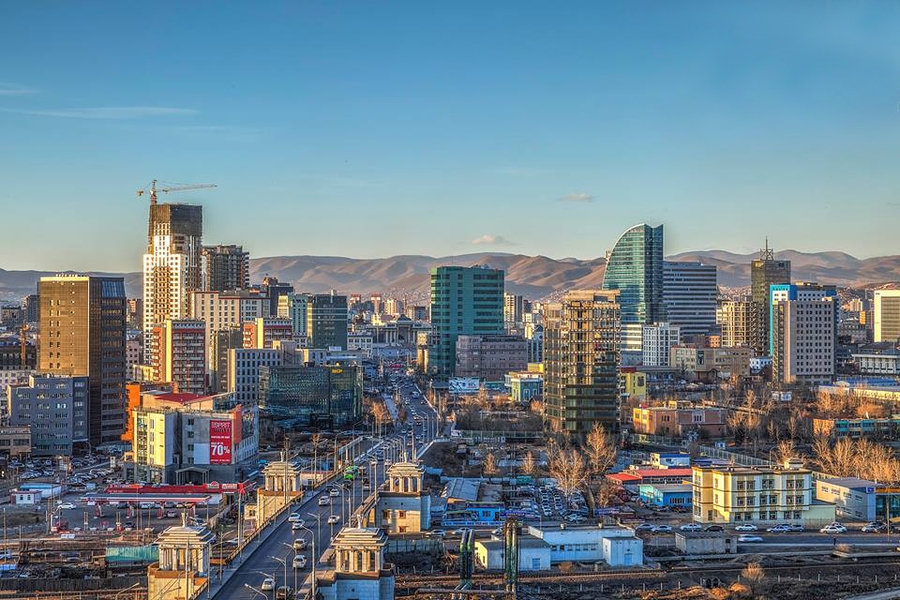
Russian teachers began to go to work in Mongolia www.latinscripts.com
Teachers of Buryatia began to leave EN masse to work in neighboring Mongolia, where teachers are valued and paid them three or four times more, the newspaper "Number one".
The publication notes that the interest of the Mongols in the Russian language existed during the Soviet era and revived in the 2000-ies, when came to power, President Nambar Enkhbayar, who studied in the Literary Institute named after Gorky. With its filing in the country there were private kindergartens and schools with teachers, and teachers — native speakers of the Russian language, has increased the demand for Russian-speaking Tutors.
Popular teachers with good pronunciation and correct speech. The most popular specialty — the teacher of initial classes, mathematics, Russian language and literature. Knowledge of Mongolian is not necessary because lessons are conducted exclusively in Russian. Teaching language is sometimes begins with three years.
Average salary of a teacher in Ulan-Ude — 15-25 thousand rubles. In the Mongolian kindergarten Russians earn two thousand mnt per month (about 70 thousand rubles), in schools — about four thousand mnt (140 thousand). Some employers provide dormitories and visa support. An added bonus is the respect of the Mongolian parents and children to teachers. The newspaper points out that the country has "a huge cult teacher," this profession is considered very prestigious. Among the disadvantages of working in Mongolia is not good ecology, traffic jams and language barrier.
According to the publication, on returning home, teachers often do not want to return to the Russian education system, become demanding employers reject bureaucratic principles. Those who fail to adapt to Russian realities, leaving again to another country to work.
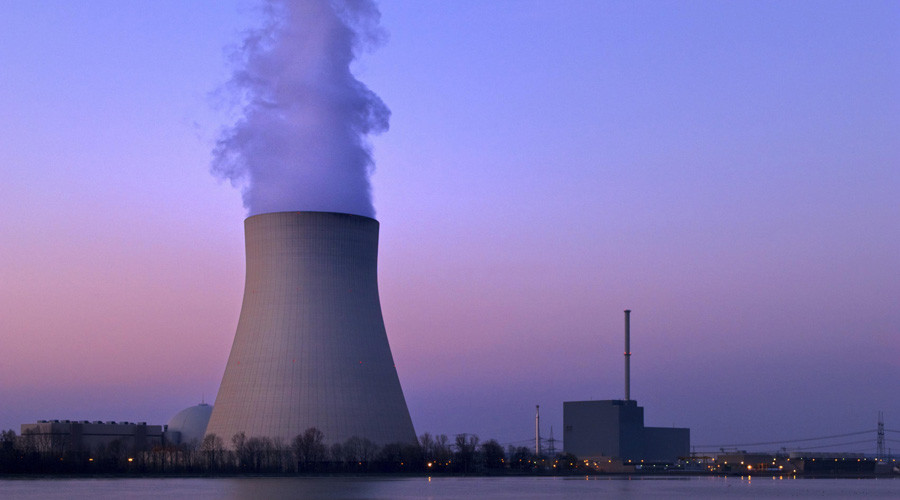
Russia & China sign agreement on construction of 2 power units at Tianwan nuclear power plant www.rt.com
Russian and Chinese state nuclear corporations have signed a general contract on construction of the seventh and eighth power units at the Tianwan Nuclear Power Plant (NPP), the biggest joint NPP project between the two countries.
The document was signed by the China National Nuclear Corporation (CNNC) and Russian Rosatom’s engineering division in Beijing earlier this month. Apart from the construction of two power units at the nuclear plant in China’s Jiangsu province, the parties also agreed on the basic design of the third and fourth units of Xudabao NPP in Liaoning province, the Russian state-run corporation announced in a statement on March 11.
“This package defines the major lines to develop cooperation between Russia and China in the nuclear industry for the next decades,” Rosatom said.
The initial agreements for the construction of the two units for the Tianwan nuclear site were inked in June 2018, when Russian President Vladimir Putin met his Chinese counterpart, Xi Jinping. It was earlier reported that works on the seventh 1,200-megawatt units are scheduled to start in 2021 and the launch was expected in 2026-2027.
Built in 2006 on the coast of the Yellow Sea, the Tianwan plant is one of the biggest joint projects of Russian-Chinese economic cooperation. The First two of its units, with a capacity of 1,000 MW each, were launched in 2007. Unit 3 began operations in 2017, and the reactor at the latest, fourth unit was launched at minimum capacity in September last year after the fuel loading had been finished ahead of schedule.
Moscow and Beijing have been broadening bilateral cooperation, including strengthening ties in the nuclear energy sector. In June, Russian and Chinese nuclear executives signed “the biggest package of contracts in the history of the two countries’ nuclear partnership,” according to Rosatom.
Apart from supplies of the power units, the package covered cooperation on a fast-neutron nuclear reactor currently under construction in China (also known as the CFR-600 fast reactor pilot project) and supply of the Radioisotope Thermoelectric Generator parts for China’s lunar exploration program.
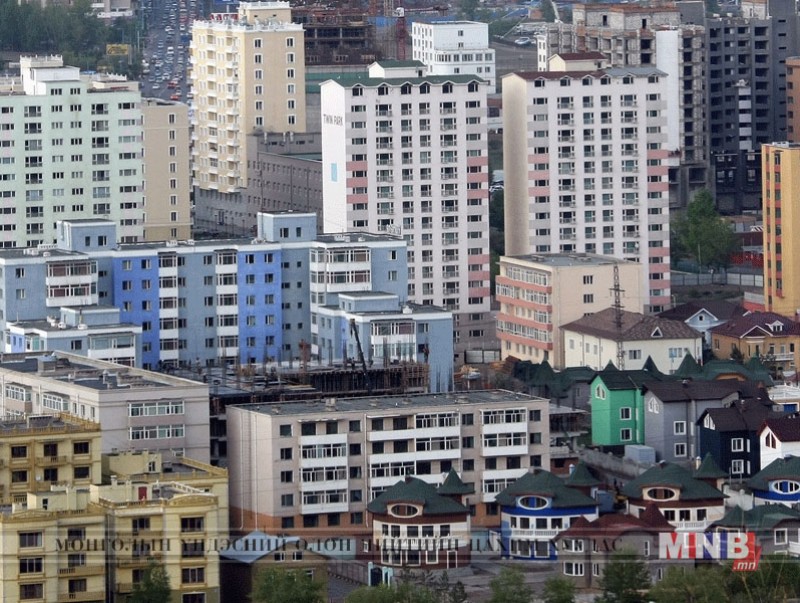
Mongolian Mortgage Corporation HFC’s $250 Million Bond Offering www.news.mn
Mayer Brown represented Mongolian Mortgage Corporation HFC LLC, the only finance company licensed to issue asset-backed securities and the sole RMBS issuer in Mongolia, on its debut US$250 million unsecured bond offering and subsequent tap issuance for an additional US$50 million.
The issuer plans to use at least 90 percent of the net proceeds from the offering to purchase mortgages with recourse and the remaining portion for general corporate purchases.
Mayer Brown has advised on a number of transactions for Mongolian issuers and the Mongolian government, and has won a number of awards in connection with those deals.
The Mayer Brown team was led by Corporate & Securities partner Jason T. Elder (Picture) and included: Corporate & Securities – partner Thomas Kollar, counsel Leslie Cruz (Washington), foreign registered lawyers Karen Chong and Joo Park (both Hong Kong), associate Thomas De Gregoris (Chicago), corporate finance officer Sean Su (Hong Kong), and Tax Transaction & Consulting – partners Jason Bazar and Jared Goldberger, and associate Brennan Young (all New York).

No more ‘ghost voting’ for Mongolian MP’s www.news.mn
The Mongolian State Great Khural (parliament) is to use a fingerprint voting system starting from the upcoming regular spring session to make lawmakers more accountable, local media reported on Thursday, citing the secretariat of the country’s unicameral parliament.
The move aims to end “ghost voting” and increase lawmakers’ turnout for parliamentary sessions, said the secretariat.
Ghost voting is an illegal practice when some lawmakers cast electronic machine ballots for their absent fellow members. It is widespread in the 76-seat parliament of Mongolia. This has raided public criticism.
The regular spring session of the Mongolian parliament is scheduled to open on 5 April.

First polymer bitumen plant opens www.montsame.mn
Ulaanbaatar /MONTSAME/ The first polymer bitumen (asphalt) plant in Mongolia was inaugurated on March 14.
Polymer bitumen will be domestically produced by the Aashto LLC, which is introducing the technology for producing euro-standard polymer modified bitumen suitable for geographical features and climate conditions of Mongolia. The 40 degrees Celsius heat resistant polymer bitumen, jointly studied by specialists of Mongolia, Russia, Italy, and Germany, can withstand temperatures from minus 46 to plus 68 degrees Celsius and its load limit is three times higher than the one used in current roads.
About the product, Director of the new plant N.Enkhtur said “We are endeavouring to elevate quality of our roads to European standards. Roads made with our asphalt would last two times longer compared with the current paved roads. The product has been tested at research institutes in Canada, Kazakhstan, and Russia”
Minister of Road and Transport Development B.Enkh-Amgalan attended the ceremony. “The time saving, improved technology brings significant change and new solution to the road sector of Mongolia” said the Minister, wishing success upon the Mongolian and foreign specialist took part in the product development and employees of the plant.
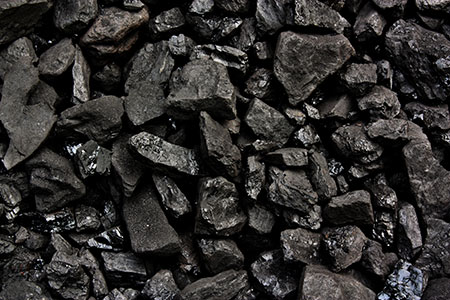
Coal preparation plant put into trial operation in Gobisumber www.montsame.mn
Ulaanbaatar /MONTSAME/ A coal preparation plant was put into trial operation in Shiveegobi soum of Gobisumber aimag. The plant has an annual capacity of washing 1.5 to 1.8 tons of coal and will create 170-180 jobs, most of which for the locals, when it is put into full operation.
Constructed and equipped in six months, it will prepare coals of Erdenes Tavan Tolgoi JSC and export them to Asian and European markets. Moreover, there is an opportunity to wash brown coal of Shivee Ovoo coal mine, raising its value.
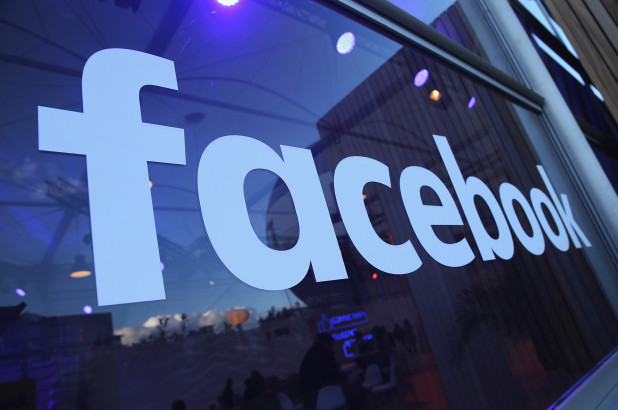
Facebook loses two of its top execs www.cnn.com
New York (CNN Business)Facebook is losing two of its top execs a week after laying out plans to reposition itself as a "privacy-focused" social network.
Facebook (FB) announced Thursday that Chris Cox, most recently its chief product officer, and Chris Daniels, who was in charge of WhatsApp, are both leaving the company.
Shares of Facebook dipped as much as 2% in after hours trading Thursday following the news.
"While it is sad to lose such great people, this also creates opportunities for more great leaders who are energized about the path ahead to take on new and bigger roles," Mark Zuckerberg, Facebook's cofounder and CEO, wrote in a note announcing the departures.
Cox, in particular, has been a longtime fixture at the company and Zuckerberg's right-hand man. He joined Facebook in 2005, shortly after it launched, and helped build the News Feed. As part of a broader reorganization last year, he was put in charge of Facebook's "family of apps," including Instagram, WhatsApp and Messenger.
In an internal post Thursday announcing his departure, Cox alluded to Facebook's recently announced plans to put privacy first by emphasizing private, encrypted and ephemeral conversations across its products.
Facebook says it's resolved outage issues and denies attack
Facebook says it's resolved outage issues and denies attack
"As Mark has outlined, we are turning a new page in our product direction," he wrote in post shared on his personal Facebook page. "This will be a big project and we will need leaders who are excited to see the new direction through."
In a filing with the Securities and Exchange Commission Thursday, Facebook said Cox intends to leave after a brief transition period.
For years, Facebook was known for having a remarkably stable executive bench. But in recent months, the company has lost its chief security officer, its top policy and communications exec, both founders of Instagram and the CEO of WhatsApp.
Daniels, who previously ran Facebook's affordable internet initiative, only took over WhatsApp less than a year ago, after WhatsApp cofounder Jan Koum stepped down as CEO amid a reported clash over Facebook's approach to personal data and encryption.
The steady drip of executive departures come amid a bruising two year period in which Facebook has faced criticism for its data privacy practices as well as stories about fake news, election meddling and filter bubbles.

Corruption rate remains high among tax authorities www.zgm.mn
The Asia Foundation, Independent Agency Against Corruption (IAAC), and Authority for Fair Competition and Consumer Protection (AFCCP) hosted a Fair Competition and Corruption discussion at the Blue Sky hotel yesterday. The discussion was based on a study of corruption in the business environment. According to the survey that is being conducted for the seventh year, corruption in the business environment is likely to decline in Mongolia. However, due to professional control and licensing, corruption in customs and taxation institutions is not decreasing.
A spokesperson of the IAAC addressed, “The survey attempts to bring to light the main issue for entrepreneurs and review recorded corruption cases. The IAAC needs to cooperate with private entities, public organizations, and civil societies to abolish corruption. Anti-corruption activities are perceived as a concern of particular organizations and specialists. However, everyone's involvement will be crucial in realizing actual results. The survey aims to see where the risk is so that we can take preventive measures.”
According to the study, corruption cases were noted in key positions that grant special permits and licenses. In terms of organizations, corruption is highly associated with professional inspection and tax authorities.
Business people perceived the current tax rates as high
According to the IAAC, the majority of business people perceived the current tax rates as high. Officials at the discussion highlighted that high taxes cause taxpayers to avoid taxes in order to increase their profits, which then leads public servants to become dependent on corruption. The problem is that bribery still exists because civil servants are abusing their power to pay taxes.
- «
- 1
- 2
- 3
- 4
- 5
- 6
- 7
- 8
- 9
- 10
- 11
- 12
- 13
- 14
- 15
- 16
- 17
- 18
- 19
- 20
- 21
- 22
- 23
- 24
- 25
- 26
- 27
- 28
- 29
- 30
- 31
- 32
- 33
- 34
- 35
- 36
- 37
- 38
- 39
- 40
- 41
- 42
- 43
- 44
- 45
- 46
- 47
- 48
- 49
- 50
- 51
- 52
- 53
- 54
- 55
- 56
- 57
- 58
- 59
- 60
- 61
- 62
- 63
- 64
- 65
- 66
- 67
- 68
- 69
- 70
- 71
- 72
- 73
- 74
- 75
- 76
- 77
- 78
- 79
- 80
- 81
- 82
- 83
- 84
- 85
- 86
- 87
- 88
- 89
- 90
- 91
- 92
- 93
- 94
- 95
- 96
- 97
- 98
- 99
- 100
- 101
- 102
- 103
- 104
- 105
- 106
- 107
- 108
- 109
- 110
- 111
- 112
- 113
- 114
- 115
- 116
- 117
- 118
- 119
- 120
- 121
- 122
- 123
- 124
- 125
- 126
- 127
- 128
- 129
- 130
- 131
- 132
- 133
- 134
- 135
- 136
- 137
- 138
- 139
- 140
- 141
- 142
- 143
- 144
- 145
- 146
- 147
- 148
- 149
- 150
- 151
- 152
- 153
- 154
- 155
- 156
- 157
- 158
- 159
- 160
- 161
- 162
- 163
- 164
- 165
- 166
- 167
- 168
- 169
- 170
- 171
- 172
- 173
- 174
- 175
- 176
- 177
- 178
- 179
- 180
- 181
- 182
- 183
- 184
- 185
- 186
- 187
- 188
- 189
- 190
- 191
- 192
- 193
- 194
- 195
- 196
- 197
- 198
- 199
- 200
- 201
- 202
- 203
- 204
- 205
- 206
- 207
- 208
- 209
- 210
- 211
- 212
- 213
- 214
- 215
- 216
- 217
- 218
- 219
- 220
- 221
- 222
- 223
- 224
- 225
- 226
- 227
- 228
- 229
- 230
- 231
- 232
- 233
- 234
- 235
- 236
- 237
- 238
- 239
- 240
- 241
- 242
- 243
- 244
- 245
- 246
- 247
- 248
- 249
- 250
- 251
- 252
- 253
- 254
- 255
- 256
- 257
- 258
- 259
- 260
- 261
- 262
- 263
- 264
- 265
- 266
- 267
- 268
- 269
- 270
- 271
- 272
- 273
- 274
- 275
- 276
- 277
- 278
- 279
- 280
- 281
- 282
- 283
- 284
- 285
- 286
- 287
- 288
- 289
- 290
- 291
- 292
- 293
- 294
- 295
- 296
- 297
- 298
- 299
- 300
- 301
- 302
- 303
- 304
- 305
- 306
- 307
- 308
- 309
- 310
- 311
- 312
- 313
- 314
- 315
- 316
- 317
- 318
- 319
- 320
- 321
- 322
- 323
- 324
- 325
- 326
- 327
- 328
- 329
- 330
- 331
- 332
- 333
- 334
- 335
- 336
- 337
- 338
- 339
- 340
- 341
- 342
- 343
- 344
- 345
- 346
- 347
- 348
- 349
- 350
- 351
- 352
- 353
- 354
- 355
- 356
- 357
- 358
- 359
- 360
- 361
- 362
- 363
- 364
- 365
- 366
- 367
- 368
- 369
- 370
- 371
- 372
- 373
- 374
- 375
- 376
- 377
- 378
- 379
- 380
- 381
- 382
- 383
- 384
- 385
- 386
- 387
- 388
- 389
- 390
- 391
- 392
- 393
- 394
- 395
- 396
- 397
- 398
- 399
- 400
- 401
- 402
- 403
- 404
- 405
- 406
- 407
- 408
- 409
- 410
- 411
- 412
- 413
- 414
- 415
- 416
- 417
- 418
- 419
- 420
- 421
- 422
- 423
- 424
- 425
- 426
- 427
- 428
- 429
- 430
- 431
- 432
- 433
- 434
- 435
- 436
- 437
- 438
- 439
- 440
- 441
- 442
- 443
- 444
- 445
- 446
- 447
- 448
- 449
- 450
- 451
- 452
- 453
- 454
- 455
- 456
- 457
- 458
- 459
- 460
- 461
- 462
- 463
- 464
- 465
- 466
- 467
- 468
- 469
- 470
- 471
- 472
- 473
- 474
- 475
- 476
- 477
- 478
- 479
- 480
- 481
- 482
- 483
- 484
- 485
- 486
- 487
- 488
- 489
- 490
- 491
- 492
- 493
- 494
- 495
- 496
- 497
- 498
- 499
- 500
- 501
- 502
- 503
- 504
- 505
- 506
- 507
- 508
- 509
- 510
- 511
- 512
- 513
- 514
- 515
- 516
- 517
- 518
- 519
- 520
- 521
- 522
- 523
- 524
- 525
- 526
- 527
- 528
- 529
- 530
- 531
- 532
- 533
- 534
- 535
- 536
- 537
- 538
- 539
- 540
- 541
- 542
- 543
- 544
- 545
- 546
- 547
- 548
- 549
- 550
- 551
- 552
- 553
- 554
- 555
- 556
- 557
- 558
- 559
- 560
- 561
- 562
- 563
- 564
- 565
- 566
- 567
- 568
- 569
- 570
- 571
- 572
- 573
- 574
- 575
- 576
- 577
- 578
- 579
- 580
- 581
- 582
- 583
- 584
- 585
- 586
- 587
- 588
- 589
- 590
- 591
- 592
- 593
- 594
- 595
- 596
- 597
- 598
- 599
- 600
- 601
- 602
- 603
- 604
- 605
- 606
- 607
- 608
- 609
- 610
- 611
- 612
- 613
- 614
- 615
- 616
- 617
- 618
- 619
- 620
- 621
- 622
- 623
- 624
- 625
- 626
- 627
- 628
- 629
- 630
- 631
- 632
- 633
- 634
- 635
- 636
- 637
- 638
- 639
- 640
- 641
- 642
- 643
- 644
- 645
- 646
- 647
- 648
- 649
- 650
- 651
- 652
- 653
- 654
- 655
- 656
- 657
- 658
- 659
- 660
- 661
- 662
- 663
- 664
- 665
- 666
- 667
- 668
- 669
- 670
- 671
- 672
- 673
- 674
- 675
- 676
- 677
- 678
- 679
- 680
- 681
- 682
- 683
- 684
- 685
- 686
- 687
- 688
- 689
- 690
- 691
- 692
- 693
- 694
- 695
- 696
- 697
- 698
- 699
- 700
- 701
- 702
- 703
- 704
- 705
- 706
- 707
- 708
- 709
- 710
- 711
- 712
- 713
- 714
- 715
- 716
- 717
- 718
- 719
- 720
- 721
- 722
- 723
- 724
- 725
- 726
- 727
- 728
- 729
- 730
- 731
- 732
- 733
- 734
- 735
- 736
- 737
- 738
- 739
- 740
- 741
- 742
- 743
- 744
- 745
- 746
- 747
- 748
- 749
- 750
- 751
- 752
- 753
- 754
- 755
- 756
- 757
- 758
- 759
- 760
- 761
- 762
- 763
- 764
- 765
- 766
- 767
- 768
- 769
- 770
- 771
- 772
- 773
- 774
- 775
- 776
- 777
- 778
- 779
- 780
- 781
- 782
- 783
- 784
- 785
- 786
- 787
- 788
- 789
- 790
- 791
- 792
- 793
- 794
- 795
- 796
- 797
- 798
- 799
- 800
- 801
- 802
- 803
- 804
- 805
- 806
- 807
- 808
- 809
- 810
- 811
- 812
- 813
- 814
- 815
- 816
- 817
- 818
- 819
- 820
- 821
- 822
- 823
- 824
- 825
- 826
- 827
- 828
- 829
- 830
- 831
- 832
- 833
- 834
- 835
- 836
- 837
- 838
- 839
- 840
- 841
- 842
- 843
- 844
- 845
- 846
- 847
- 848
- 849
- 850
- 851
- 852
- 853
- 854
- 855
- 856
- 857
- 858
- 859
- 860
- 861
- 862
- 863
- 864
- 865
- 866
- 867
- 868
- 869
- 870
- 871
- 872
- 873
- 874
- 875
- 876
- 877
- 878
- 879
- 880
- 881
- 882
- 883
- 884
- 885
- 886
- 887
- 888
- 889
- 890
- 891
- 892
- 893
- 894
- 895
- 896
- 897
- 898
- 899
- 900
- 901
- 902
- 903
- 904
- 905
- 906
- 907
- 908
- 909
- 910
- 911
- 912
- 913
- 914
- 915
- 916
- 917
- 918
- 919
- 920
- 921
- 922
- 923
- 924
- 925
- 926
- 927
- 928
- 929
- 930
- 931
- 932
- 933
- 934
- 935
- 936
- 937
- 938
- 939
- 940
- 941
- 942
- 943
- 944
- 945
- 946
- 947
- 948
- 949
- 950
- 951
- 952
- 953
- 954
- 955
- 956
- 957
- 958
- 959
- 960
- 961
- 962
- 963
- 964
- 965
- 966
- 967
- 968
- 969
- 970
- 971
- 972
- 973
- 974
- 975
- 976
- 977
- 978
- 979
- 980
- 981
- 982
- 983
- 984
- 985
- 986
- 987
- 988
- 989
- 990
- 991
- 992
- 993
- 994
- 995
- 996
- 997
- 998
- 999
- 1000
- 1001
- 1002
- 1003
- 1004
- 1005
- 1006
- 1007
- 1008
- 1009
- 1010
- 1011
- 1012
- 1013
- 1014
- 1015
- 1016
- 1017
- 1018
- 1019
- 1020
- 1021
- 1022
- 1023
- 1024
- 1025
- 1026
- 1027
- 1028
- 1029
- 1030
- 1031
- 1032
- 1033
- 1034
- 1035
- 1036
- 1037
- 1038
- 1039
- 1040
- 1041
- 1042
- 1043
- 1044
- 1045
- 1046
- 1047
- 1048
- 1049
- 1050
- 1051
- 1052
- 1053
- 1054
- 1055
- 1056
- 1057
- 1058
- 1059
- 1060
- 1061
- 1062
- 1063
- 1064
- 1065
- 1066
- 1067
- 1068
- 1069
- 1070
- 1071
- 1072
- 1073
- 1074
- 1075
- 1076
- 1077
- 1078
- 1079
- 1080
- 1081
- 1082
- 1083
- 1084
- 1085
- 1086
- 1087
- 1088
- 1089
- 1090
- 1091
- 1092
- 1093
- 1094
- 1095
- 1096
- 1097
- 1098
- 1099
- 1100
- 1101
- 1102
- 1103
- 1104
- 1105
- 1106
- 1107
- 1108
- 1109
- 1110
- 1111
- 1112
- 1113
- 1114
- 1115
- 1116
- 1117
- 1118
- 1119
- 1120
- 1121
- 1122
- 1123
- 1124
- 1125
- 1126
- 1127
- 1128
- 1129
- 1130
- 1131
- 1132
- 1133
- 1134
- 1135
- 1136
- 1137
- 1138
- 1139
- 1140
- 1141
- 1142
- 1143
- 1144
- 1145
- 1146
- 1147
- 1148
- 1149
- 1150
- 1151
- 1152
- 1153
- 1154
- 1155
- 1156
- 1157
- 1158
- 1159
- 1160
- 1161
- 1162
- 1163
- 1164
- 1165
- 1166
- 1167
- 1168
- 1169
- 1170
- 1171
- 1172
- 1173
- 1174
- 1175
- 1176
- 1177
- 1178
- 1179
- 1180
- 1181
- 1182
- 1183
- 1184
- 1185
- 1186
- 1187
- 1188
- 1189
- 1190
- 1191
- 1192
- 1193
- 1194
- 1195
- 1196
- 1197
- 1198
- 1199
- 1200
- 1201
- 1202
- 1203
- 1204
- 1205
- 1206
- 1207
- 1208
- 1209
- 1210
- 1211
- 1212
- 1213
- 1214
- 1215
- 1216
- 1217
- 1218
- 1219
- 1220
- 1221
- 1222
- 1223
- 1224
- 1225
- 1226
- 1227
- 1228
- 1229
- 1230
- 1231
- 1232
- 1233
- 1234
- 1235
- 1236
- 1237
- 1238
- 1239
- 1240
- 1241
- 1242
- 1243
- 1244
- 1245
- 1246
- 1247
- 1248
- 1249
- 1250
- 1251
- 1252
- 1253
- 1254
- 1255
- 1256
- 1257
- 1258
- 1259
- 1260
- 1261
- 1262
- 1263
- 1264
- 1265
- 1266
- 1267
- 1268
- 1269
- 1270
- 1271
- 1272
- 1273
- 1274
- 1275
- 1276
- 1277
- 1278
- 1279
- 1280
- 1281
- 1282
- 1283
- 1284
- 1285
- 1286
- 1287
- 1288
- 1289
- 1290
- 1291
- 1292
- 1293
- 1294
- 1295
- 1296
- 1297
- 1298
- 1299
- 1300
- 1301
- 1302
- 1303
- 1304
- 1305
- 1306
- 1307
- 1308
- 1309
- 1310
- 1311
- 1312
- 1313
- 1314
- 1315
- 1316
- 1317
- 1318
- 1319
- 1320
- 1321
- 1322
- 1323
- 1324
- 1325
- 1326
- 1327
- 1328
- 1329
- 1330
- 1331
- 1332
- 1333
- 1334
- 1335
- 1336
- 1337
- 1338
- 1339
- 1340
- 1341
- 1342
- 1343
- 1344
- 1345
- 1346
- 1347
- 1348
- 1349
- 1350
- 1351
- 1352
- 1353
- 1354
- 1355
- 1356
- 1357
- 1358
- 1359
- 1360
- 1361
- 1362
- 1363
- 1364
- 1365
- 1366
- 1367
- 1368
- 1369
- 1370
- 1371
- 1372
- 1373
- 1374
- 1375
- 1376
- 1377
- 1378
- 1379
- 1380
- 1381
- 1382
- 1383
- 1384
- 1385
- 1386
- 1387
- 1388
- 1389
- 1390
- 1391
- 1392
- 1393
- 1394
- 1395
- 1396
- 1397
- 1398
- 1399
- 1400
- 1401
- 1402
- 1403
- 1404
- 1405
- 1406
- 1407
- 1408
- 1409
- 1410
- 1411
- 1412
- 1413
- 1414
- 1415
- 1416
- 1417
- 1418
- 1419
- 1420
- 1421
- 1422
- 1423
- 1424
- 1425
- 1426
- 1427
- 1428
- 1429
- 1430
- 1431
- 1432
- 1433
- 1434
- 1435
- 1436
- 1437
- 1438
- 1439
- 1440
- 1441
- 1442
- 1443
- 1444
- 1445
- 1446
- 1447
- 1448
- 1449
- 1450
- 1451
- 1452
- 1453
- 1454
- 1455
- 1456
- 1457
- 1458
- 1459
- 1460
- 1461
- 1462
- 1463
- 1464
- 1465
- 1466
- 1467
- 1468
- 1469
- 1470
- 1471
- 1472
- 1473
- 1474
- 1475
- 1476
- 1477
- 1478
- 1479
- 1480
- 1481
- 1482
- 1483
- 1484
- 1485
- 1486
- 1487
- 1488
- 1489
- 1490
- 1491
- 1492
- 1493
- 1494
- 1495
- 1496
- 1497
- 1498
- 1499
- 1500
- 1501
- 1502
- 1503
- 1504
- 1505
- 1506
- 1507
- 1508
- 1509
- 1510
- 1511
- 1512
- 1513
- 1514
- 1515
- 1516
- 1517
- 1518
- 1519
- 1520
- 1521
- 1522
- 1523
- 1524
- 1525
- 1526
- 1527
- 1528
- 1529
- 1530
- 1531
- 1532
- 1533
- 1534
- 1535
- 1536
- 1537
- 1538
- 1539
- 1540
- 1541
- 1542
- 1543
- 1544
- 1545
- 1546
- 1547
- 1548
- 1549
- 1550
- 1551
- 1552
- 1553
- 1554
- 1555
- 1556
- 1557
- 1558
- 1559
- 1560
- 1561
- 1562
- 1563
- 1564
- 1565
- 1566
- 1567
- 1568
- 1569
- 1570
- 1571
- 1572
- 1573
- 1574
- 1575
- 1576
- 1577
- 1578
- 1579
- 1580
- 1581
- 1582
- 1583
- 1584
- 1585
- 1586
- 1587
- 1588
- 1589
- 1590
- 1591
- 1592
- 1593
- 1594
- 1595
- 1596
- 1597
- 1598
- 1599
- 1600
- 1601
- 1602
- 1603
- 1604
- 1605
- 1606
- 1607
- 1608
- 1609
- 1610
- 1611
- 1612
- 1613
- 1614
- 1615
- 1616
- 1617
- 1618
- 1619
- 1620
- 1621
- 1622
- 1623
- 1624
- 1625
- 1626
- 1627
- 1628
- 1629
- 1630
- 1631
- 1632
- 1633
- 1634
- 1635
- 1636
- 1637
- 1638
- 1639
- 1640
- 1641
- 1642
- 1643
- 1644
- 1645
- 1646
- 1647
- 1648
- 1649
- 1650
- 1651
- 1652
- 1653
- 1654
- 1655
- 1656
- 1657
- 1658
- 1659
- 1660
- 1661
- 1662
- 1663
- 1664
- 1665
- 1666
- 1667
- 1668
- 1669
- 1670
- 1671
- 1672
- 1673
- 1674
- 1675
- 1676
- 1677
- 1678
- 1679
- 1680
- 1681
- 1682
- 1683
- 1684
- 1685
- 1686
- 1687
- 1688
- 1689
- 1690
- 1691
- 1692
- 1693
- 1694
- 1695
- 1696
- 1697
- 1698
- 1699
- 1700
- 1701
- 1702
- 1703
- 1704
- 1705
- 1706
- 1707
- 1708
- 1709
- 1710
- 1711
- 1712
- 1713
- 1714
- »






